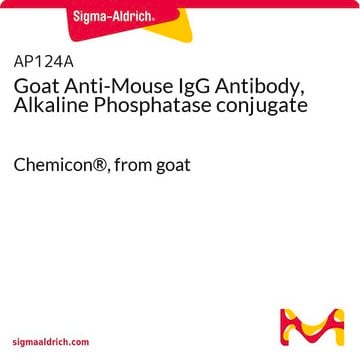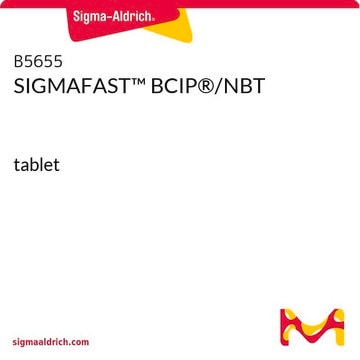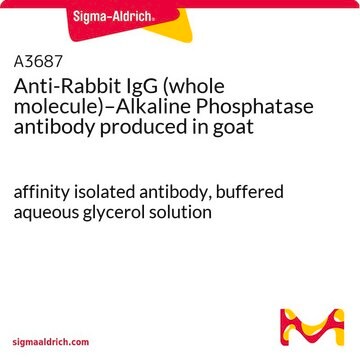DC05L
Goat Anti-Mouse IgG Alkaline Phosphatase Conjugate
lyophilized, Calbiochem®
About This Item
Recommended Products
biological source
goat
Quality Level
antibody form
affinity isolated antibody
antibody product type
secondary antibodies
clone
polyclonal
form
lyophilized
contains
≤0.1% sodium azide as preservative
manufacturer/tradename
Calbiochem®
storage condition
OK to freeze
isotype
IgG
shipped in
ambient
storage temp.
2-8°C
target post-translational modification
unmodified
Related Categories
General description
Immunogen
Application
Immunoblotting (1:5000-1:100,000, colorimetric; 1:10,000-1:200,000, chemiluminescence)
Warning
Physical form
Reconstitution
Other Notes
Legal Information
Not finding the right product?
Try our Product Selector Tool.
Signal Word
Danger
Hazard Statements
Precautionary Statements
Hazard Classifications
Acute Tox. 3 Dermal - Acute Tox. 4 Inhalation - Acute Tox. 4 Oral - Aquatic Chronic 3
Storage Class Code
6.1C - Combustible acute toxic Cat.3 / toxic compounds or compounds which causing chronic effects
WGK
WGK 3
Certificates of Analysis (COA)
Search for Certificates of Analysis (COA) by entering the products Lot/Batch Number. Lot and Batch Numbers can be found on a product’s label following the words ‘Lot’ or ‘Batch’.
Already Own This Product?
Find documentation for the products that you have recently purchased in the Document Library.
Our team of scientists has experience in all areas of research including Life Science, Material Science, Chemical Synthesis, Chromatography, Analytical and many others.
Contact Technical Service









